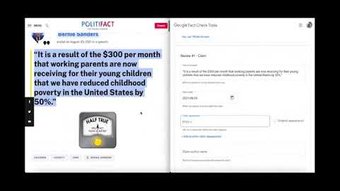Katie Attwell @ Fondation Merieux OCT 2017 with transcript
1
About :
Katie Attwell @ Fondation Merieux OCT 2017 - transcript - https://justpaste.it/bamli
0:00
..do not hear that there have been recent policy changes in various jurisdictions with regard to vaccines becoming
so-called mandatory and I'll explain that 'so-called' in a minute.
But of course California in 2015 removing all exemptions except medical exemptions for compliance with vaccination requirements.
0:20
Australia in 2016 we spend a lot of time at the last meeting for those who are here talking about 'No job no Pay,' so I've deliberately not included any discussion of that this year. But of course I'm sure it will come out in the in the discussion if people want.
0:34
Then this year we've had both Italy and France announced that they're introducing policies with mandatory vaccinations.
0:41
so I think the first question we need to ask ourselves and a lot of this a lot of what the slides you're seeing are the consequences of me thinking through some of these questions.
And of course you may think them through differently and if so you know I'd love to hear about it at the end.
0:55
When I asked myself what vaccine mandates are seeking to govern, it was fairly self-explanatory to me that they were seeking to govern acceptance rather than access but as I'll demonstrate in a moment there are potentially some other ways we could think about this as well.
1:10
But one of the things the reason I said so-called when I talked about mandates is that there's not actually a clear established definition of what we mean when we talk about vaccines being mandatory. So we don't actually know what it is that we're referring to. And we don't know what the tipping point is that suddenly might make something mandatory or not mandatory.
1:29
So there's this term will be used in discourse and in political discourse and within our field but people might be meaning different things when when they say mandatory.
1:40
So I made a slide and what I've thought to do in this slide is - we like Continuum's in this research area - so I made a continuum that on one side is is sort of the settings in which vaccination is completely voluntary and that the other end includes what I would regard to be the most harsh measures the state could take against those who don't vaccinate.
2:02
And that's fines and imprisonment and but I will get to this in a moment all right. Because there's it's not this simple But anyway imagine it is just for a moment - imagine we just look at it according to what the kind of stated policy is.
2:18
Then in the top line I've talked about requirements that are linked to public goods and by public goods I mean things like you know, public daycare and public schools.
2:27
So along the kind of more voluntary end of the axis you can have requirements about vaccinations that say 'you've got to be vaccinated to access these public goods' but there can be exemptions available for those who don't want to comply.
And the next more strict level of that is where there's requirements related to access to public goods and the - oh there's not really exemptions only for medical situations down here.
I've said that as I've suggested it's a separate category when it's actually not public goods but in financial incentives I think there's a qualitative difference with regard to money coming into your pocket then there is with regard to accessing something in your community.
3:07
So the equivalent is you know you can get the goodies if you if you comply but you can also get out of complying with some effort and still get the goodies or this one over here - you can't get the goodies unless you comply and only a medical exemption will still get you the goodies.
3:24
Now the last thing I wanted to do is ask myself that question around how each of these kind of effects both the access and the acceptance equation.
3:34
But I found it wasn't helpful to think about access and it was more helpful to think about this term complacency that we also encounter in the literature about vaccinations which I know is a qualitatively different thing.
3:47
But in terms of thinking what thinking through who mandates are supposed to work on, I thought about you know, because we don't need to worry about the people who are going to turn up anyway. And we do need to think about access but I'm trying to kind of keep that out of this picture at the moment.
4:00
But there's clearly a group of people that we might regard as - and access can certainly play a role in this but I'm not going to conflate the two - who just for various reasons might not be getting to the clinic. And this is all kind of working in a setting which I realize is not the real world in which we assume that vaccines are available and easily accessed.
4:18
So in that imaginary setting the people who wouldn't get them ever complacent and those who actually don't want them.
So at the voluntary end of the spectrum there is no compulsion for either category: it's all about once you've got all the access levers in place. It's really all about many of the techniques we've talked about today in terms of getting people that's drawing in that I liked from the social marketing discussion.
Actually just getting people to get off their butt and get in and get vaccinated.
4:46
Once we start moving onto requirements linked to public goods and also financial extensive, sorry financial incentives with exceptions. So either way you can get the goodies if you're not vaccinated with some effort.
5:01
I've suggested what's going on here is the state is queuing us a complacency. These policies are really about getting people off their butt and into the clinic and that's precisely because rejecters can access them with effort so they're not
really about accessing rejectors so much.
5:15
It's actually about saying you know we'll try and get people in and if you don't want to come in and you go to a bit of effort: that's okay. At this end I'm suggesting again the state is queuing for complacency but by excluding or denying rejecters the policy is actually actively targeting these people to in either form.
5:35
Once they get to this end I sort of speculate that the policy is now actually about motivating those who are rejecters. And the policy is working on the complacent, because they don't want to face the penalty, but now I'm suggesting that certainly in the cut..
5:51
I'm not suggesting this has always been the case in context where these have been introduced but I'm suggesting now perhaps the way we might frame these is that you know you're coming with a penalty and that's going to get everyone off their butt and those who really don't want to get off their butt: they're going to face the penalty.
So that's a very oversimplified version of it but that's how I've kind of conceptualized it.
6:12
But as I said it's really not that simple and it doesn't work on just one continuum. It's almost like you need multiple dimensions of 'continui' (if that is a word) at work here and some questions that of course underpin and problematized the slide I just showed you. One it is really are all related to - is it really mandatory? and go back to this idea that we don't actually have a fixed definition.
6:35
So one question of course is if there are exemptions, are they easy or difficult to get?
6:40
so nevermind what type as we talked about in the previous paper for whatever there is how is your difficult other to get and how often do you have to get them? vis a vis how often one might have to get a vaccine?
And then just some you know interesting other points like some US states have criminal consequences.
6:58
So they're right back at the harsh end but they've got exemptions and I didn't mapthem on my continuum - but just showing you it can be more complex.
And then also you know, just some interesting things that can happen with exemptions. For example in Washington once and we heard about this earlier .once people had to start going to see a medical you know, a health care worker in order to have their - any type of exemption validated - what what one study reports is that people started get even though they were able to get other kinds of exemptions, the number of medical exemptions arose.
7:29
so that's kind of interesting. I'm just offering this is the kind of details that can play out when policies are implemented.
7:37
Then there's a whole bunch of questions around requirements. So they might be you know they might appear to exist but who enforces them well or are they enforced? and how often and for whom?
You know, which category of person is going to experience the consequence of this?
And is it going to be a universal thing or a certain categories of people going to be targeted?
And then what are the one of the consequences of their non-compliance? what is going to happen to them?
So how do these consequences bite and who do they bite? Again going back to the earlier question of, - are they going to be applied to everybody or certain categories?
And really the take-home from this is that just because a policy exists doesn't mean it's going to be enforced and it's if it's not enforced then can it really be said to exist in in the way that it might appear to be presented?
8:23
Now I want to spend a little bit of time looking at rationales that states may offer or that we may be able to explore and expose for why mandates might be introduced. And here this is not me offering any endorsement of these policies or rationales: it's me again thinking through, well you know in what situations might we see these coming in and the kind of conversations that would come around that.
8:45
So the first I've categorized as 'moral.' And in my own country of Australia there's been a discourse that's been introduced by the right of politics for over a decade and that's this term 'mutual obligation.' And what it really means is if you're going to get goodies from the state it doesn't come with no strings.
And it's quite a it's quite an unpleasant discourse in my opinion and it's been used to target the vulnerable such as job seekers or welfare recipients.
9:15
With the job seekers, it's been used to require them to complete very onerous job search diaries, work for the dole for perhaps three days a week
9:24
So you've got a dual, you've got to do a lot of work in order to get unemployment benefits. And now we're seeing the same discourse introduced with regard to welfare recipients.
9:36
And there's trials ongoing right now of people to see if they're taking drugs. And if you're taking drugs you can actually have your (illegal drugs obviously) you can have your welfare money quarantined.
So this term has explicitly also been employed by the government, the right-leaning government in Australia to bring to this vaccination concept as well and mandatory vaccination.
9:57
But I would suggest under this moral heading as well there can be a I guess a nicer or a more appealing version of the moral argument.
10:05
And this is around you know, linking it to the public good and saying that if other people in the community are
accessing this public good and this can be with regard to things like child care and schools. If if you're not vaccinated and you're going there, it can actually affect the entitlement of other people to be able to enjoy these public goods.
So it's a different kind of moral argument about communities.
10:30
Then there can be a whole crisis rationale and I think that's certainly what we're seeing at the moment. And the crisis might be unfolding you know that something like the Disneyland measles outbreak could be regarded as at the time there's a kind of unfolding crisis.
10:46
Then there might be an impending crisis. So this is someone's looking at the numbers and getting worried and starting a conversation about what the numbers might mean?
And of course there's also the idea that a crisis could be manufactured by you know both certain forces as well. So I think here we have to ask us you know what are the numbers tell us about, about any kind of crisis discourse and the legitimacy of using this crisis framing?
11:09
Then I have suggested that there might be a rationale around effectiveness. So if you know the questions around aren't so called mandates - whatever they are - targeting the population that you intended to target? And are they working?
11:22
So one thing that I want to be clear on is that I believe that mandates are about changing behavior but not beliefs.
11:32
And you don't always have to change beliefs to change behaviors, we would like to - but then it's an empirical question of well 'is it?' 'does it?' 'is it is it actually having that effect?'
And then finally I've included this term 'affective,' alluding to the idea of affect or our affect, our personal experience of emotion. And here what I'm trying to get at is we might want to stop and ask ourselves - who is this policy actually working for?
12:00
And what I refer to here is the work by a Scholar of International Relations called Lee Jones who looked at when countries impose sanctions on other countries for contravening international law or international norms.
12:14
And of course this is always a pertinent conversation right now as well.
So what he found was that when people or when States seek to impose sanctions on other countries everyone's kind of like 'yeah you know we'll impose the sanctions. That'll show them!'
And he actually when he wanted to uncover that process and say: well, do the sanctions work? Do that you know everyone thinks sending sanctions is the kind of end point but the end point surely has to be: Do they work?
12:40
And so he went in and had a good look and found - surprisingly or unsurprisingly depending where you sit - but frequently they didn't work. And frequently they didn't have that effect. And what he is suggested and found in his research was that actually the sending of the sanctions was often much more about the sender than the recipient.
12:57
so I'm suggesting in this context it could be about a kind of emotional experience for those wanting to punish people who don't comply with vaccinations. But also it might serve political ends as Jones found in his own study. Sending sanctions might mean a lot more at home than it does overseas where you sought to send them, if that makes sense.
13:21
And finally, I want to suggest the idea that occurring within this this imposition of mandates, may actually be a form of trickery.
So if there is sort of political demand or demand in the community - something you know resembling a mandate might emerge. But the devil might lie in the detail and perhaps it was never really going to be a mandate after all.
13:42
So having explored this, I now just want to kind of categorize mandates within the forms of governance available to
states, with regard to vaccinations. And this won't be anything new to any of you but I'm hoping it might just be an interesting and thought-provoking way of framing mandates within the other activities that we're here to discuss at this meeting.
14:01
So there are various tools that the state has at its disposal to control us. And the most old-fashioned and kind of well-known would be hierarchy. And this is really the state using its monopoly of coercive power and its control of economic means to do stuff with money and laws basically legislation and finance.
14:24
And so it's this is where mandates fit right this is kind of old-fashioned top-down control.
14:31
Then there's the stuff that those of us in this room are much more comfortable with one of which is persuasion which of
course can include campaign social marketing communications strategies.
And here I suggest that this is again something that governments, you know a key involved in, but they can have
partners that include us. Whoever we are.
14:48
And then you know some scholars and I agree with them and now framing nudge is something different than persuasion. The key distinction being that persuasion is about engaging with us as active agents who consciously are involved in making decisions. And it's kind of giving us a lot of credit and working with our capacity to reason and reach good conclusions.
15:10
Whereas nudging can be much more about orienting towards uncritical acceptance. And again it's you know, this is
something governments can be doing. It's also something healthcare providers can be doing with regard to the presumptive approach that Opel has written about for example. But also you know, recall reminder schemes at the practice level.
15:27
So I think there's a distinction there between those two modes of governance. But I think that both of them are
probably a lot more appealing to the people in this room perhaps than this top kind.
15:37
And of course the point to make is we start to think about societies that are introducing mandatory vaccinations in whatever mandatory means, is that persuasion and nudge don't go away. They remain open to policy and practice actors in societies with mandates. And the state can also structure and make use of these tools.
15:54
And of course if governments are smart they will do so, right? like if you use these forms of governance in association with each other, they're likely to be effective in the goal of actually changing the behavior that you want. But also importantly they can promote the norm.
16:12
So although I've suggested that mandates don't change they don't change our beliefs they only change our behavior in
time, perhaps they can change our beliefs through processes of norming but I'm not going to drill into that right now.
16:27
So, acceptance in the age of mandates: what does all of this mean for those of us here in the room? I've kind of tried to consider what our lives and works look like before and what they might look like now. And I want to suggest that you know - and when I talk about this us I'm framing those of us in this room as researchers and people working in government, working in you know delivering programs around vaccinations.
Tags :
Their limit for today is $0!






























Comments:
Reply:
To comment on this video please connect a HIVE account to your profile: Connect HIVE Account